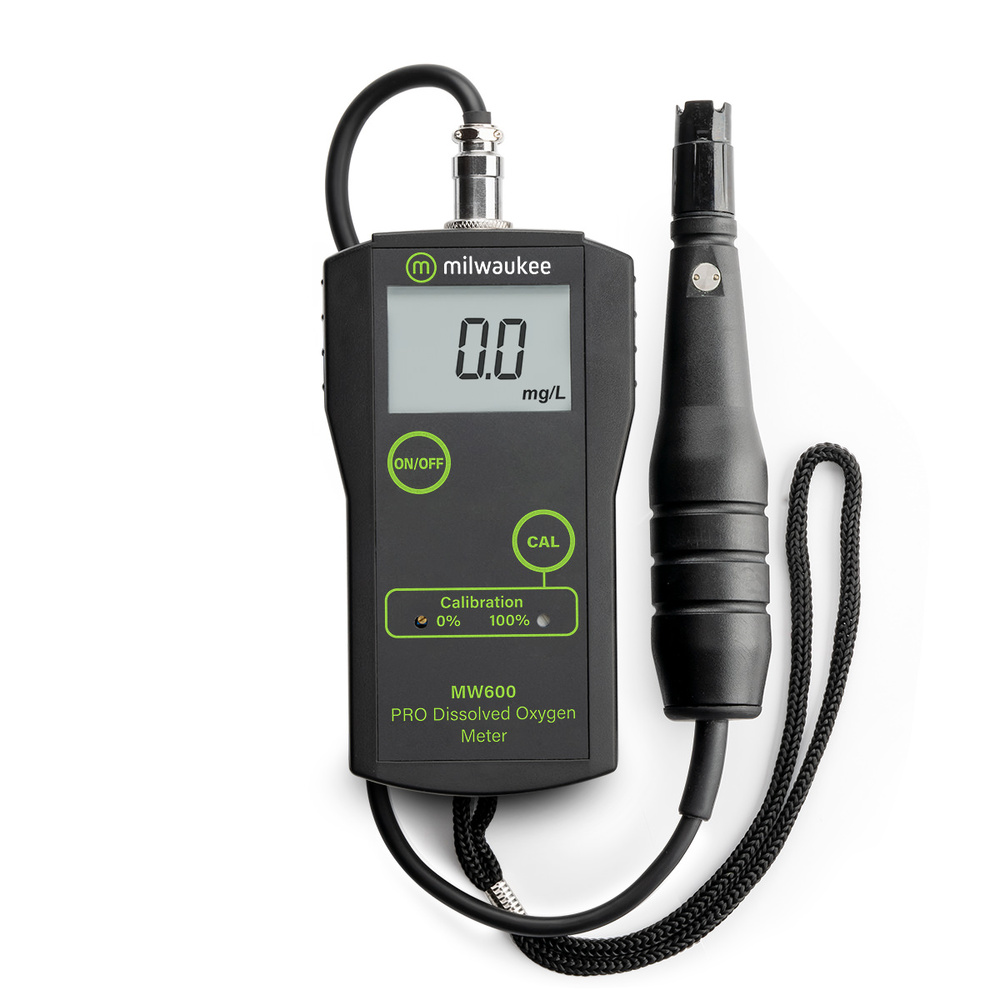FOOD PH METER. LAB GRADE. HIGH PERFORMANCE. TOUGH.
The Milwaukee MW102 PRO Food pH meter has won fans around the world with its reliable, fast and simple operation as well as its toughness and accuracy. The MW102 Food pH meter combines the power of the MW102 meter with the specialist capabilities of the MA920B/1 Direct Measurement Food Grade pH Probe.
WHAT PEOPLE ARE SAYING
“Amazingly accurate, the best meter I have used so far.”
“Very satisfied, very accurate, rugged device that calibrates easily.”
“Rarely needs to be calibrated and gives perfect readings every time.”
“Killer tool, good value.”
SUMMARY
The Milwaukee PRO pH Meter is a specialist food pH meter and probe combination specifically designed for the pH analysis of semi-solid foods such as processed meats, soft cheeses, soups, sauces, and sushi rice.
The Milwaukee PRO pH meter offers:
ACCURACY
People choose the PRO pH Meter to improve the accuracy of their pH testing program. With two point calibration, the meter can be quickly calibrated to a higher accuracy compared with one point calibration. The MW102 meter has accuracy to 0.02 pH. 5x more accurate than some alternative meters.
The meter comes with both a pH probe and temperature probe allowing the meter to automatically adjust the pH reading for the effect of temperature.
The temperature probe can also be used as a very accurate thermometer.
TOUGHNESS
The rugged meter is built to take knocks.
SPECIALIZED DESIGN FOR PH ANALYSIS IN FOOD
MA920 food probe features include an open junction design that reduces clogging from suspended solids and proteins found in food and dairy products for a more stable pH measurement and reduced maintenance.
The probe also has a conical shaped tip design which allows for penetration into solids, semi solids, and emulsions for the direct measurement of pH in a variety of food products.
In addition, the body is constructed from polyvinylidene fluoride (PVDF). PVDF is a food grade plastic that is resistant to most chemicals and solvents used for disinfection in the food sector, including chlorine (bleach).
DESIGN FEATURES
- Fast easy to read results with large digital LCD readout
- Extreme accuracy to ±0.02 pH and extended range (-2.00 pH to 16.00 pH)
- Lightweight and portable
- Easy measurement: just place the probe in the sample, gently stir and wait for the reading to stabilize
- Simple push button, automatic two-point calibration for increased accuracy
- Food grade electrode with a rugged, easy-to-clean, PVDF body, a conical tip for use with semi solids with a screw on cap to ensure proper storage
- Rugged stainless temperature probe
- 3 feet probe cables for extra flexibility when testing
- Auto shut off and low power demand with approx. 300 hours of continuous use (battery included)
CARE AND USE
pH meters usually start performing poorly because of problems with the probe. The two parts of the pH probe that cause problems are the glass sensing bulb and the reference junction.
SENSING BULB
The glass bulb loses sensitivity with use and will eventually fail. This is true of all pH probes.
REFERENCE JUNCTION
The reference junction is a small hole that allows the meter to compare the sample to a reference. The reading is generated based on the electrical difference between the sample and reference. If the junction hole gets clogged, the pH electrode will no longer function.
You can extend the life of your pH electrode in the following ways.
STORAGE
The pH probe needs to be kept hydrated. Long periods of dry storage will damage the sensitivity of the probe. Allowing the probe to dry out may also result in the junction hole getting clogged.
Storing in pH probe storage solution MA9015 or pH calibration buffers will help address both these issues. Do not store in tap water and DI water. This will damage the sensitivity of the probe.
The best way to store the probe is with the probe’s cap filled with storage solution or calibration buffer and the cap tightened to prevent leakage. It is also recommended that to store the electrode upright to further reduce the potential for leakage.
CLEANING
Residue from the sample can impact the sensitivity of the sensing bulb and clog the junction. This is especially true if the sample has a lot of organic material. We recommend regularly soaking your electrode in cleaning solution MA9016.
CALIBRATION
The pH sensing bulbs become less sensitive over time so make sure that you are calibrating regularly to keep your PRO Plus pH meter accurate. Also, calibrate after cleaning or a long period of storage.




